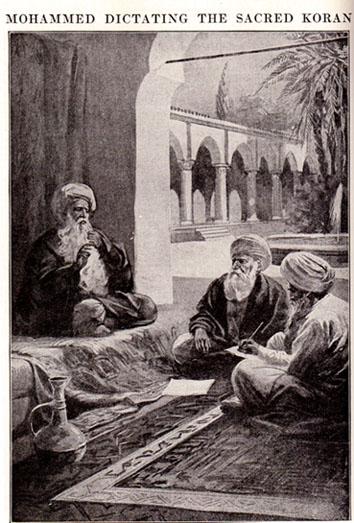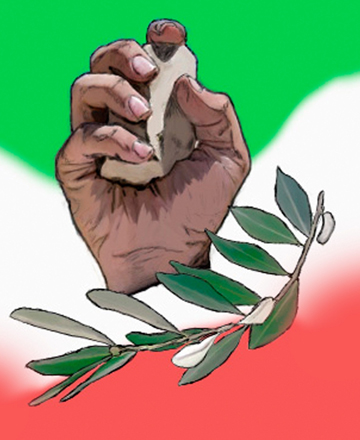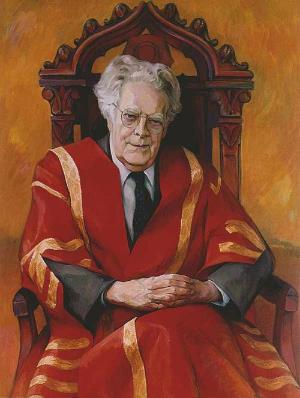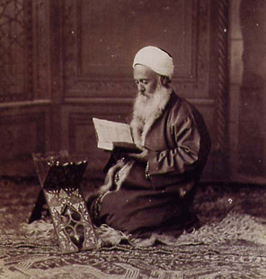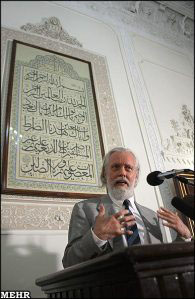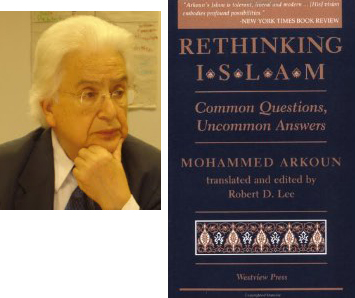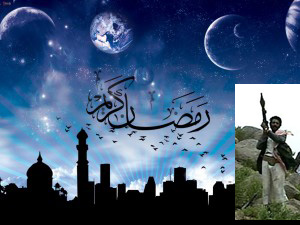
Religion and politics have always been intertwined, even though some rituals would seem to be above the fray. Consider the fasting month of Ramadan, which has just ended. The Islamic hijra calendar is lunar with arbitrary 30-day months for a lunation which is not exactly 30 days. So determining when a month begins is linked to the sight of the new moon. Before the age of mechanical clocks it was also necessary to fix dawn by observation of the sunrise and decide at what point it was possible to say the sun had risen. In the early days of Islam the timing of Ramadan and the prayer times was based on visible signs. Scholars devised scientific and folk scientific means of telling time, but the basic premise is that a pious individual must make the call.
The Fiqh Council of North America advocates a fixed date based on modern astronomical calculation. Here is how Dr. Zulfiqar Ali Shah states it:
People have landed upon the Moon and Muslims are still fighting about the moon sighting. Islamic Shari’ah is not static. It responds to people of all times and differing circumstances. Actual moon sighting is a mean to determine Ramadan and not an objective in itself. Islam requires certainty regarding the sacred timings. During Prophetic era this certainty was achieved either through physical moon sighting or through estimation or completion of thirty days. Currently the astronomical calculations about the birth of new moon are so accurate that astronomers can determine moon birth dates years in advance. The Qur’an in Surah Yunus authenticates calendar based upon such precise astronomical calculations. “It is He Who made the sun to be a shining glory and the moon to be a light, and measured out stages for it (moon); that you might know the number of years and the calculations. (10:5) There is absolutely nothing in the Qur’an which categorically mandates actual moon sighting for confirmation or negation of Ramadan. The Qura’nic exegetes universally agree that the verse of Surah al-Baqarah (2:185) “So whosoever witnesses the month among you should fast in it†does not require physical moon sighting but mandates residential presence and knowledge of Ramadan as the legal cause of fasting. The original linguistic meanings of the word hilal revolve around announcement with loud voice, cry of joy and sharing news publicly by raising voices. The new moon was metaphorically called al-hilal because the Arabs at its first sight used to express joy and publicly announce coming of the new month. Therefore, there is absolutely nothing in the Qur’an that requires actual moon sighting as the only means of determining Ramadan. The supposed Prophetic supplications (Dua’s) at first glance of the new moon are based upon weak Ahadith. Moreover these supplications can be recited at any time the person sees the new moon first time.
A nice idea, but one that depoliticizes the timing and thus is bound to run into opposition. A case in point is Yemen. Continue reading The Politics of Ramadan
